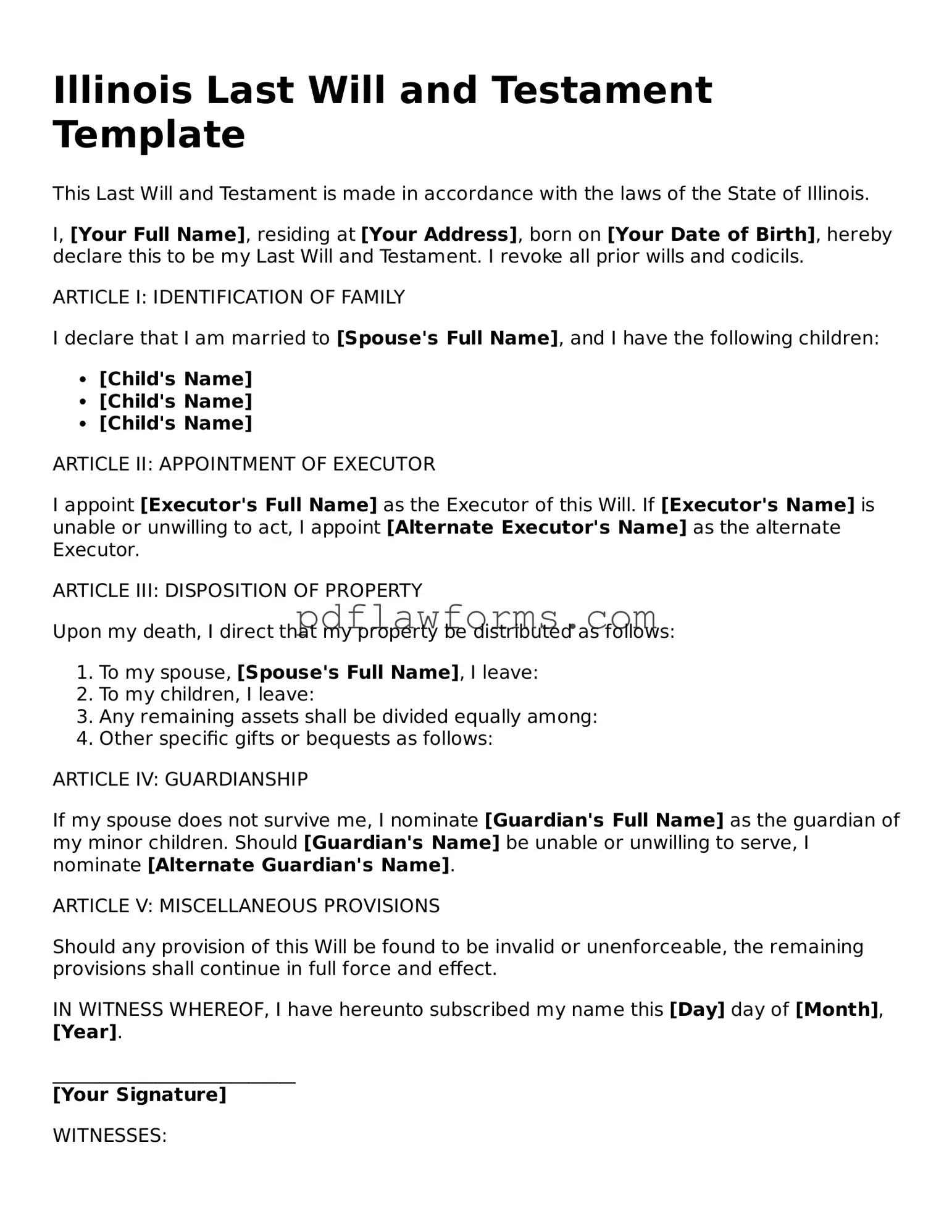Last Will and Testament Form for the State of Illinois
The Illinois Last Will and Testament form is a legal document that outlines how an individual wishes their assets to be distributed after their death. This form also allows the individual to designate guardians for any minor children and to appoint an executor to manage the estate. It is crucial to complete this form accurately to ensure that your wishes are honored; click the button below to get started.
Make My Document Online

Last Will and Testament Form for the State of Illinois
Make My Document Online
You’re halfway through — finish the form
Edit and complete Last Will and Testament online, then download your file.
Make My Document Online
or
⇩ Last Will and Testament PDF
